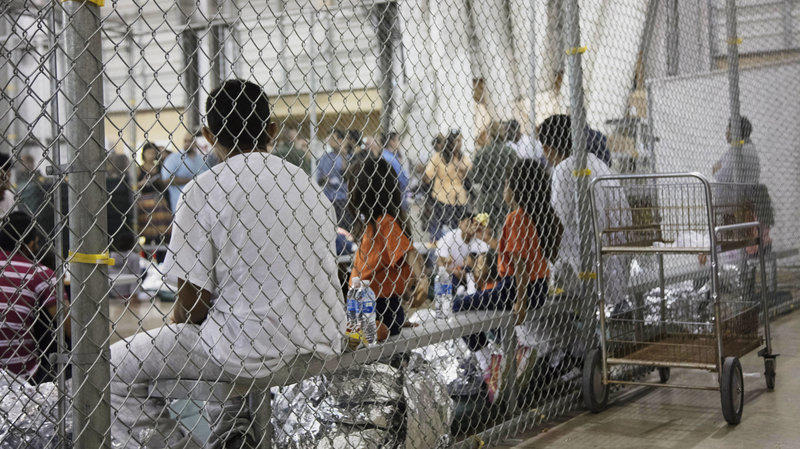Science of Family Separation and Trauma Suggests Long-Term Damage

People detained at a facility in McAllen, Texas, on June 17, 2018. Provided by the U.S. Customs and Border Protection’s Rio Grande Valley Sector
A Harvard brain scientist who studies trauma in children is warning of lasting damage to the young migrants who’ve been separated from their parents at the border.
When neuroscientist Charles Nelson saw photos of children crowded in facilities, he immediately thought of the orphans he studied in Romania, where cold, unemotional caregiving led to severe developmental problems.
“People get in their heads, ‘We’ll just provide the basic needs,'” he said. “‘Feed them, keep them warm, give them bathroom facilities and something to entertain themselves and they’ll be fine.’ [That’s] completely missing the point of caregiving.”
Although President Trump signed an order to halt the separation of families, thousands of children are still away from their parents, with no plan for reunification, and — Nelson said — they’re likely terrified. While some children do bounce back from trauma, he said this cohort is likely to be primed for damage.
“So they’re fleeing an area where there’s already high levels of violence and potentially traumatic experiences,” he said, “and then they have this hazardous journey to the border. Those two things may sensitize the system, so that this is sort of a tipping point — the separation.”
